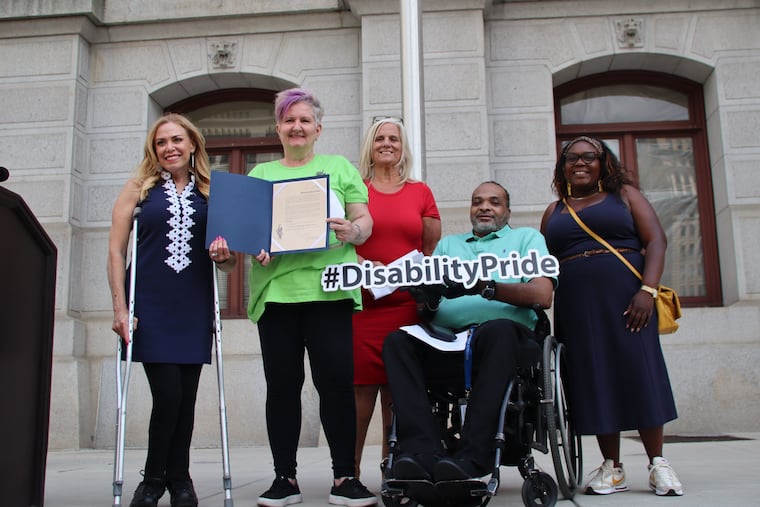Philly voters approve ballot question making Office for the People with Disabilities permanent
The ballot question asked whether the office should be added to the Home Rule Charter, solidifying Mayor Jim Kenney’s order to create it.

The Philadelphia Office for People with Disabilities is here to stay, thanks to a ballot initiative that was approved by voters Tuesday night.
The ballot question — approved by about 86% of voters who cast ballots — asked whether the Office for People with Disabilities should be permanently established in the city charter, and Philadelphians said yes. It was the only ballot question posed to Philadelphia voters in Tuesday’s general election.
The main function of the office — which has existed since 2017 — is to ensure that the city complies with accessibility laws such as the Americans with Disabilities Act and Fair Housing Act. It is currently made up of the Mayor’s Commission on People with Disabilities, which advocates and provides resources for Philadelphians with disabilities, and the Office of ADA Compliance.
Mayor Jim Kenney created the office through an executive order, which could have been repealed in the future. The ballot measure now codifies the department into city law.
The effort is particularly significant for Philadelphia, which has the highest population of people with disabilities out of the top 10 largest cities in the United States. About 17.4% of Philly residents have a disability, compared with 14.6% across the state, according to 2022 Census data.
» READ MORE: Follow along here for live Election Day updates
But the city doesn’t have a clean record when it comes to supporting those residents. A 2019 lawsuit argued that Philly sidewalks violate federal law, which resulted in the city agreeing in a 2022 settlement to install or fix at least 10,000 curb ramps over 15 years, with 2,000 ramp benchmarks every three years.
At-large City Councilmember Kendra Brooks proposed the charter change with the support of Kenney in June before the City Council unanimously passed the effort.
“Making sure that every Philadelphian can participate in community, in culture, and in the life of our city is not just our moral obligation but our legal obligation,” Brooks, a member of the Working Families Party, said in June. “By submitting this charter change to voters, we acknowledge the work that still needs to be done, and we affirm our commitment to making Philadelphia accessible for everyone.”
The Mayor’s Office for People with Disabilities has an operating budget of about $318,000 for federal year 2024, according to mayoral spokesperson Charlotte Merrick. The office currently has three full-time staff members, one VISTA AmeriCorps worker and one intern. By the end of 2023, a fourth staffer will join the team.
Amy Nieves, the executive director of the office, said in June that the legislation is personal “as a disabled neurodivergent with deafness.”
“There is much work to do, but today marks a historic moment that this work will be embedded in our city charter going forward and our office will become a permanent office within the city of Philadelphia to better serve our community,” she said after Council passed the measure.